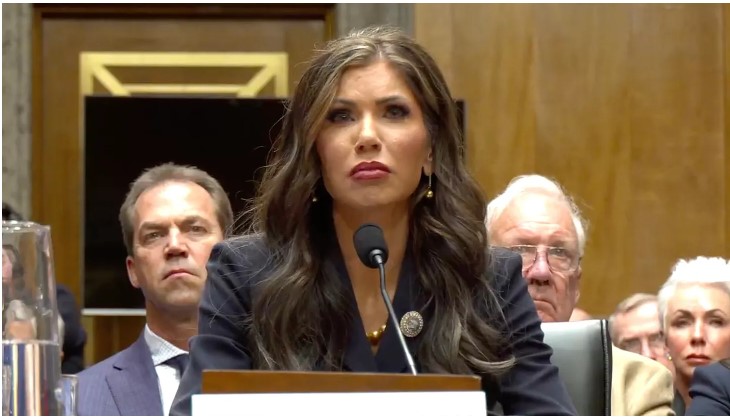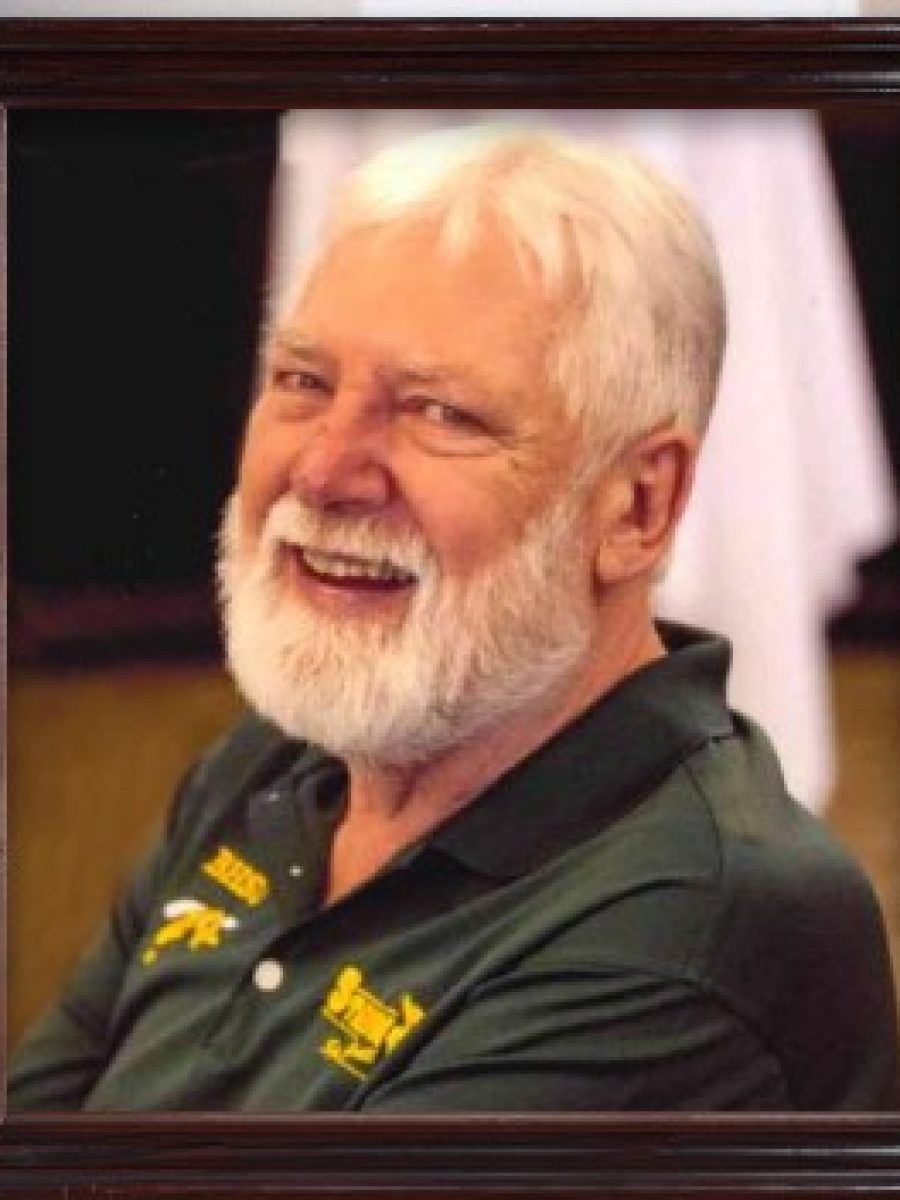Republican and Democratic senators say national security a bipartisan issue that should focus on protecting Americans
WASHINGTON, D.C. – South Dakota Gov. Kristi Noem breezed through her Senate confirmation hearing Friday, vowing to follow the laws created by Congress and to uphold the U.S. Constitution.
She also vowed to help President-elect Donald Trump make a 180-degree turn on the last four years of border policy.
Noem’s hearing was largely an exercise in bipartisanship, with both Democratic and Republican committee members expressing the need for both political parties to work together to keep the United States safe. That tone was set by the ranking Democratic member on the committee, Michigan Sen. Gary Peters.
“Let’s move away from this toxic political environment that we have in the country and celebrate what’s great about our county in the spirit of brining the American people together,” he said.
“It’s a non-partisan role,” agreed Oklahoma Republican Sen. James Lankford. “It is a national security role.”
The hearing was a departure from some of the more confrontational hearings that have taken place this week for Trump’s nominees, including defense secretary and attorney general.
Peters was joined by his fellow northern border state Sen. Margaret Hassan, D-N.H., to express concern about that border. While the focus of illegal immigration and national security threats have been on the border with Mexico, they said that the northern border was also a concern.
Noem pledged to work to secure the resources necessary to expand personnel and technology on the border – Hassan said remote parts of the border don’t have cell service – noting that the northern border has geographic challenges that the southern border doesn’t have.
Hassan questioned why Noem had turned down federal cybersecurity grants through a program she had sponsored. The program had allocated $1 billion for states over four years to apply for grants to help upgrade local government cybersecurity networks. Hassan said she was a sponsor of the program, and she asked why South Dakota was one of only two states to turn down the grants.
Noem responded that the grants included requirements that she expand state government and resources to accept them, which she declined to do. She also cited the South Dakota’s in-house cybersecurity resources.
Hassan said she had created the program to be streamlined and non-burdensome to states, but she said she looked forward to having a future conversation with Noem about why the South Dakota governor thought there were requirements placed on states.
The exchange was polite, and about as confrontational as Noem faced over the course of two and a half hours of questioning.
Cybersecurity – one of the areas overseen by Homeland Security – came up repeatedly during the hearing, and Noem talked about various Chinese-led hacking attacks. She mentioned the state’s expertise in the area with Dakota State University, noting that the Madison, South Dakota school had trained employees used by the National Security Agency.
But other areas of Homeland Security were not touched on – with Noem expressing surprise near the end of her hearing that more questions hadn’t been addressed about the Transportation Security Administration.
The dominant subject was on border security. Arizona Democratic Sen. Ruben Gallego wanted assurances that Homeland Security would continue to assist small border communities with assistance. Those communities, he said, bear the brunt of immigration and often have scant resources, with just a few law enforcement officers. Gallego said Arizona border communities had used Homeland Security resources in the right way, unlike other places, and he cited New York state.
Gallego also expressed concern that a draconian deportation policy would have negative effects on the food industry, driving up inflation if labor was deported. He noted that South Dakota has an agricultural industry that might be affected.
Noem said the priority of the incoming administration is to deport about 425,000 immigrants with known criminal convictions, including murderers and rapists.
“That will be a focus we need to tackle right away,” she said. The next focus, she added, would be on the population of immigrants with existing deportation orders.
New Jersey Democratic Sen. Andy Kim questioned whether Noem would be truly in control of border policy. He referred to public comments made by Trump saying incoming Border Czar Tom Homan would be in charge. That, he said, would be an intrusion on the duties of the Homeland Security secretary.
“I want to make sure we are empowering the next secretary of Homeland Security. . . I just raise that as a concern of mine,” Kim said.
Homan has endorsed Noem to be the next secretary, and Noem said, “Tom and I work very well together.” In the end, she said Trump would be in charge of border policy.
Democrats also wanted assurances that Noem would distribute disaster assistance dollars without regard to political bias, which she said she would do. The specter of the California wildfires that destroyed thousands of homes in Los Angeles was brought up several times Friday. Some Republicans have suggested that assistance dollars shouldn’t come without conditions – they blame California’s leadership for failing to take precautions and preparing for the wildfires.
Noem told Wisconsin Republican Sen. Ron Johnson, who worried that unfettered disaster assistance created “moral hazard,” that she wished California had better local leadership and that if it had better local leadership, the response to the fires would have been different.
Committee Chairman Rand Paul, a Kentucky Republican who has been wary about government overreach and the dangers of the security state, introduced the hearing by warning about the powers of department his committee oversees.
The Department of Homeland Security is a creature of the post 9/11 terrorist attacks, when the federal government moved to house several distinct agencies under the roof of one department. The reasoning behind its creation was to streamline communication among the agencies – lack of communication was a pitfall to uncovering the 9/11 attacks before they occurred.
But Paul said the department – with 260,000 employees and 20 distinct components – was a “bureaucratic labyrinth.” The department had failed Paul’s past questioning to identify a list of its core functions.
“This mission drift is dangerous,” Paul said.
Noem said the department would protect the First Amendment and discontinue a practice of monitoring social media companies for “misinformation” and of pressuring those companies to censor speech that government officials objected to.
Johnson also expressed doubts about the department, saying he would have opposed its creation 20 years ago. And he wished her luck in leading such a massive organization in a way that suggested she had a large job ahead of her.











